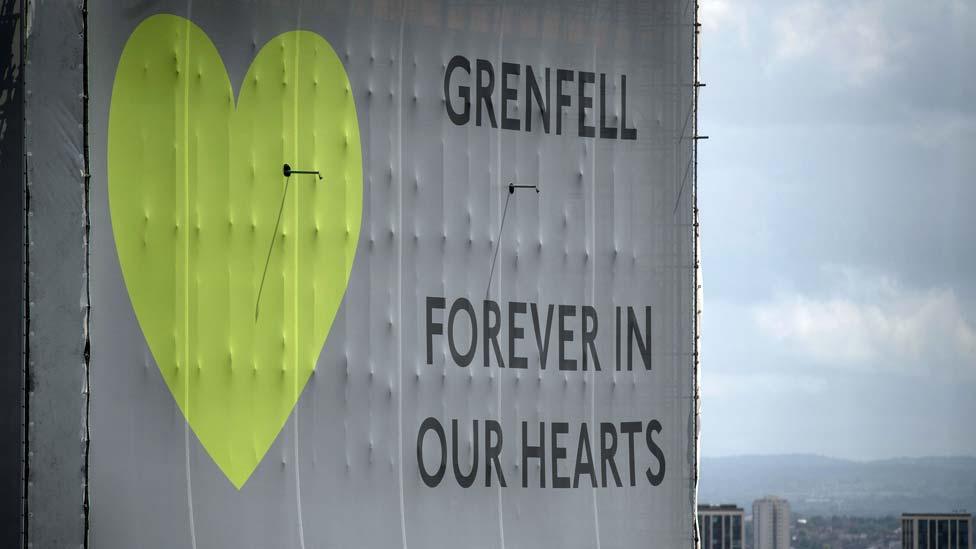Get the cladding off, pleads fire commissioner
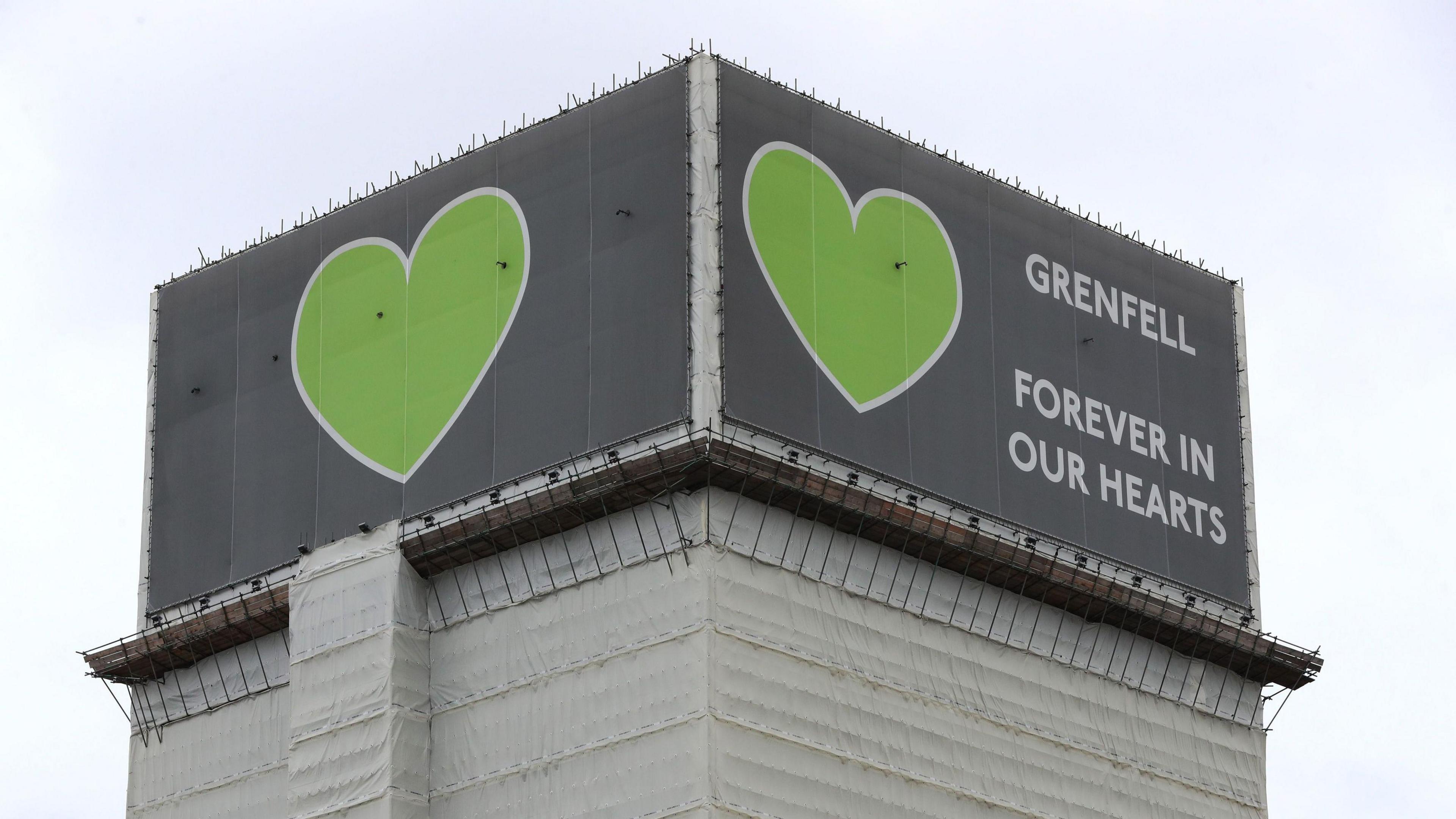
Grenfell-style cladding or "serious deficiencies" remain at 1,250 high-rise blocks in London, the London Fire Brigade commissioner says
At a glance
The London Fire Brigade has a "fundamentally different" approach after the 2017 Grenfell fire
About 1,250 high-rise blocks still have Grenfell-style cladding or "serious deficiencies", its commissioner has warned
The brigade has completed all recommendations made in the first stage of the Grenfell Tower Inquiry
- Published
"Get the cladding off" 1,250 high-rise blocks in London, the London Fire Brigade (LFB) commissioner has pleaded.
Andy Roe said these high-rises still had Grenfell-style cladding or "serious deficiencies", seven years after the fatal fire.
He said firefighters were sometimes "operating in very high-risk buildings that should have been fixed by now".
He said that in taking the LFB out of special measures, he was "keeping a promise to the survivors of Grenfell".
'Fundamentally different'
It was announced last week that the LFB had come out of special measures imposed in 2022, after a report found the service was "institutionally misogynist and racist".
It has also completed all the recommendations made to it by the first stage of the Grenfell Tower Inquiry.
By March 2022 it had completed , external26 of the 29, external recommendations, external.
Mr Roe said the brigade's response to an emergency like that of the 2017 west London blaze, in which 72 people died, would be "fundamentally different" today.
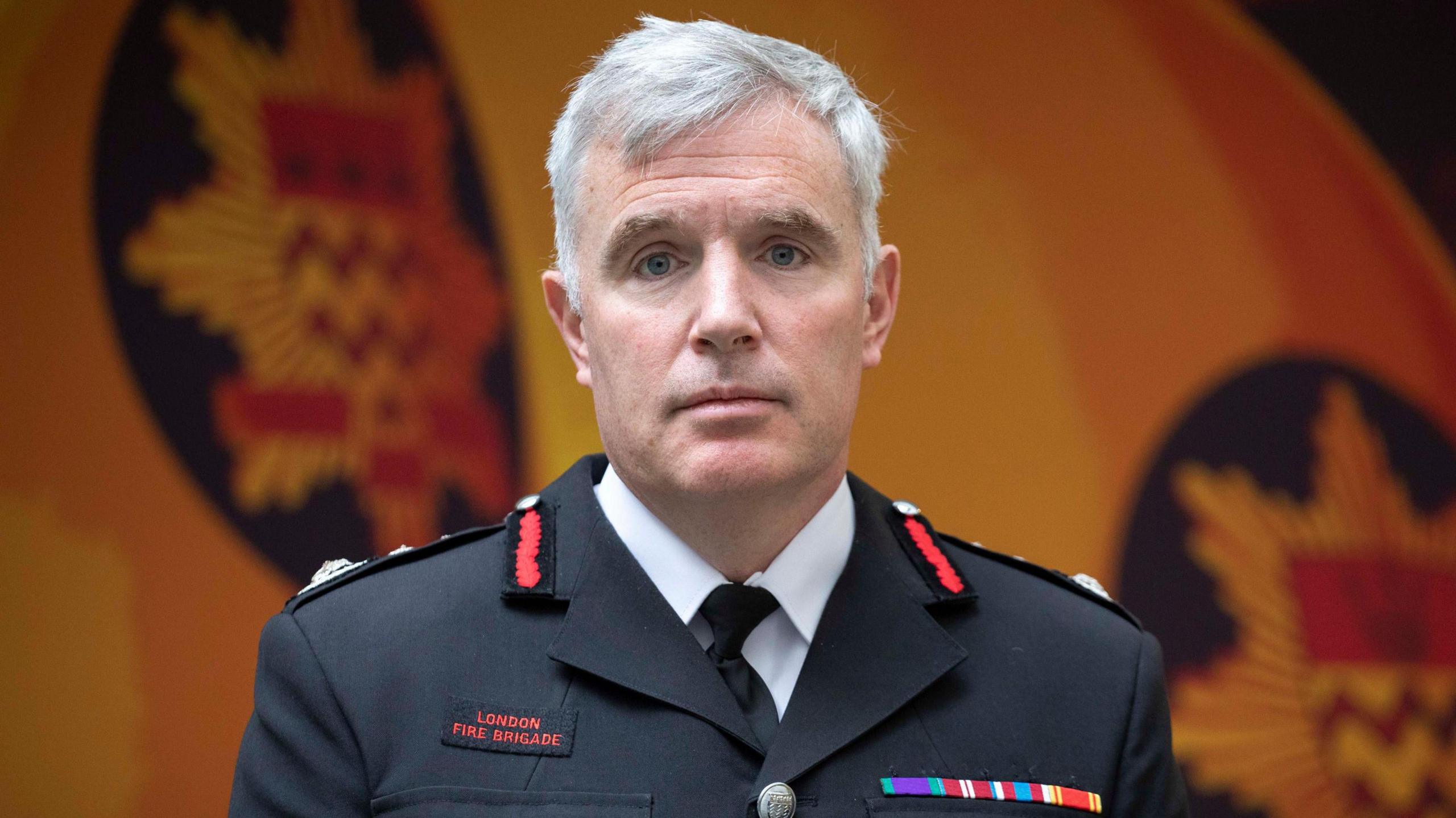
Commissioner Andy Roe pleaded with building owners and managers to "do the right thing"
The recommendations were made in October 2019 and the last one - which involves new breathing apparatus sets - came into force on Wednesday.
The other two recommendations were to investigate ways for the LFB, Metropolitan Police and London Ambulance Service to read each other’s messages, and to store electronic buildings plans and make them available for responding to incidents.
Mr Roe called the completion a "very significant milestone" which had made "hundreds of thousands of Londoners" living in flat blocks safer.
Grenfell United, which represents the bereaved and survivors, said: "The London Fire Brigade’s announcement today is a small step forward in the change sorely needed after Grenfell."
'Fix the faults in your building'
Speaking at Old Kent Road fire station in south-east London, Mr Roe said a fire of the scale of the Grenfell Tower blaze could happen again in the capital.
"I would take this opportunity to implore building owners and managers, who are ultimately the only people who can fix this, to do the right thing - to get the cladding off, to fix the faults in your building and ensure your residents are safe," he said.
"We have two high-rise fires a day in London, which is more than the rest of the country put together."
Mr Roe said that his crews were sometimes at risk by entering buildings "that should have been fixed by now".
"What is different is our response," he said.
"Our response is so different that I am confident that at the earliest point, my colleagues - these fantastic officers and crews - would recognise the danger signs and would do everything to get people safely out of that block."
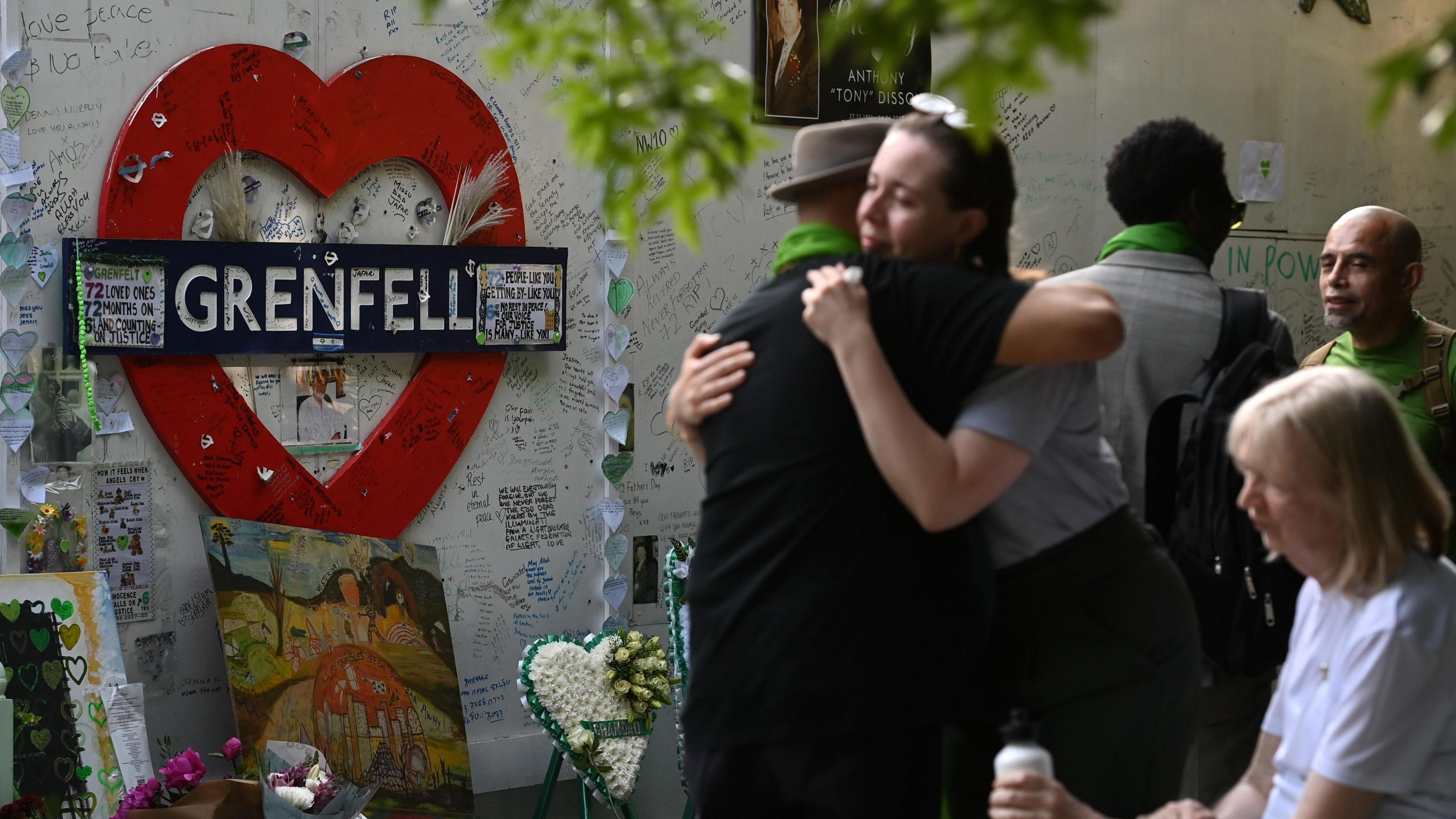
Mr Roe said the LFB's response would now be "fundamentally different" from the one seen after the Grenfell fire
Mr Roe continued: "My promise, though, to anyone... and particularly the bereaved and the survivors, is that it doesn't mean we've ticked a box and the job is done.
"This amazing city is always changing. We have to change all the time too in response to that."
Mr Roe said the biggest change implemented in the LFB was the training given to firefighters to recognise when a building might be failing and, "at the earliest point", to lead an emergency evacuation to save lives.
New equipment
London firefighters show off some of the new innovations in the brigade
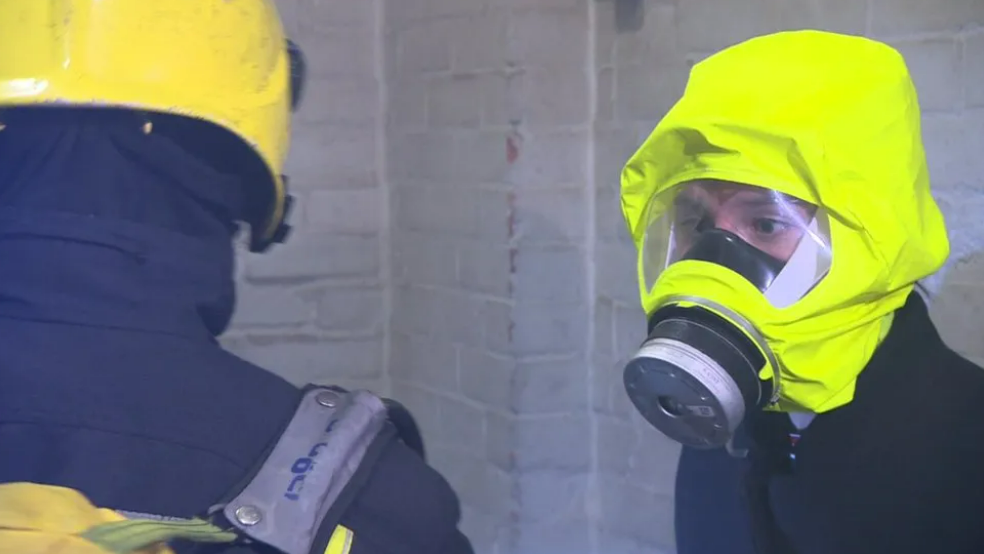
Fire escape hoods protect people from toxic smoke in a blaze
Temporary sub-officer Kat Wilson said the brigade's new breathing apparatus sets were lighter, could be cleaned more thoroughly, and allowed firefighters to share air if an officer was running low.
The LFB's fire survival guidance (FSG) app, launched in 2022, was also developed directly from one of the recommendations of the inquiry.
Deputy assistant commissioner Joanne Smith said it allowed information to be collated and displayed on one platform, accessible from the ground and from control rooms.
The Met Police and London Ambulance Service can access the portal as well.
"It replaces communications via voice over a radio," Ms Smith said.
Other pieces of equipment introduced or improved since the 2019 recommendations include fire escape hoods, which protect people from smoke, and drones.
The commissioner said he was hopeful the changes had and would continue to increase public confidence in the service, but said Londoners would be the judge of that.
Grenfell United said it was looking to the next report and set of recommendations.
“The Phase 2 report is set to be published later this year with a new set of recommendations. But government’s inaction gives us little hope that these will be prioritised and implemented," a spokesperson for the group said.
“With the ongoing political uncertainty this year, the Grenfell recommendations of both Phase 1 and 2 should be a cross-party priority, regardless of who is in power."
A Home Office spokesperson said the government remained "wholly committed to putting measures in place to ensure a tragedy like the Grenfell Tower fire never happens again".
They added: "Of the 15 recommendations directed at government in Phase 1 of the Grenfell Tower Inquiry, we have completed 11 and work continues on the remaining four."
Listen to the best of BBC Radio London on Sounds and follow BBC London on Facebook, external, X, external and Instagram, external. Send your story ideas to hello.bbclondon@bbc.co.uk, external
- Published6 March 2024
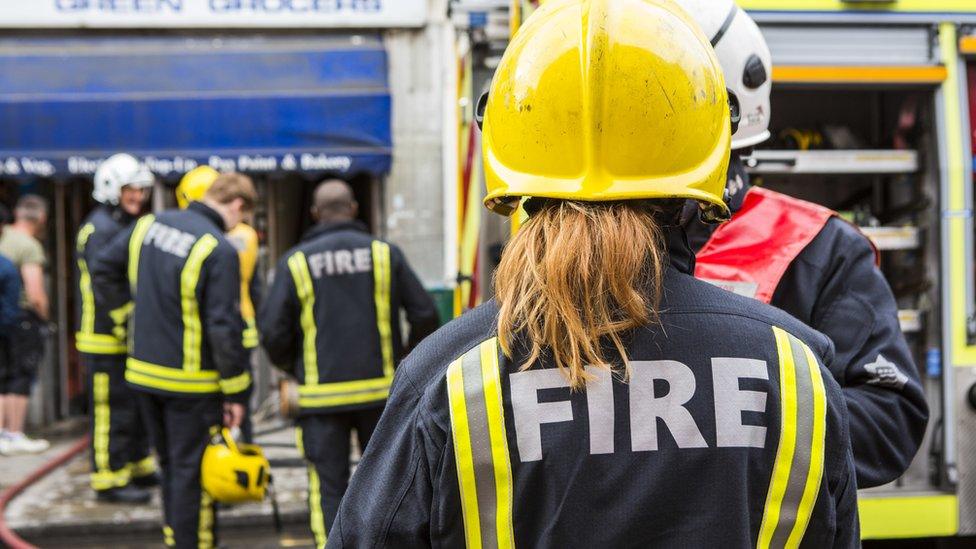
- Published29 October 2019
